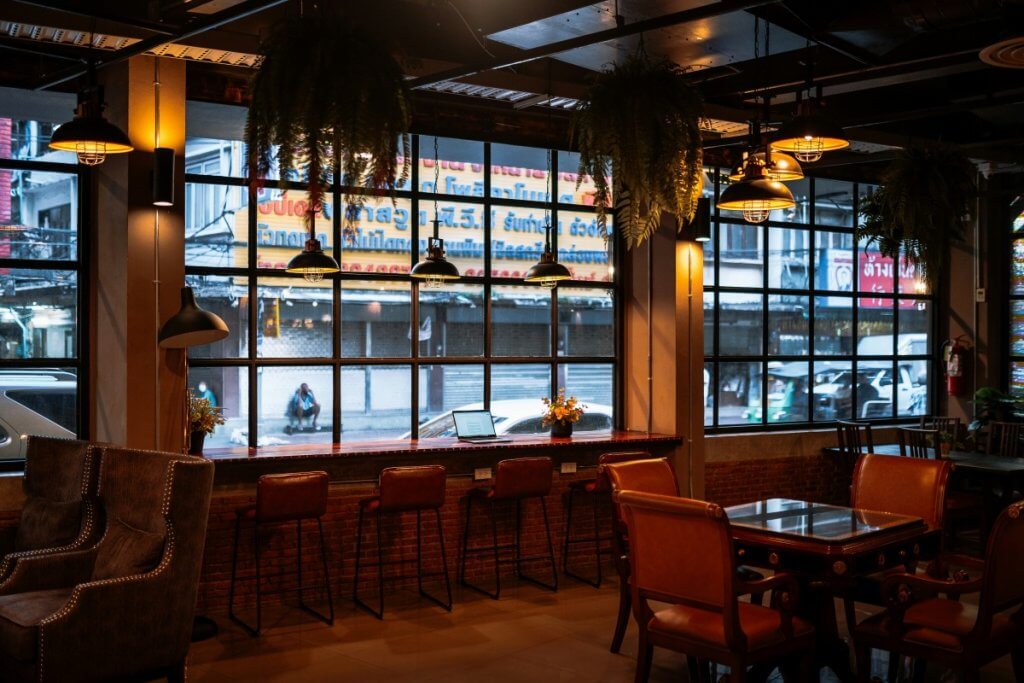Perhaps, working remotely from another country is among your New Year’s resolutions. If it is, and you’re looking for a viable place to go for the perfect work holiday, we’re letting you know right now that Thailand is a great place for Filipino digital nomads.
In this article, we’ll cover everything you need to know to help you get started on your workation in the Land of Smiles.
Why Choose Thailand For Your Working Holiday
Thailand has long been a top destination for vacationers from all over the world, so its progression to becoming a favorite in Southeast Asia for digital nomads and remote workers seeking a balance between productivity and adventure shouldn’t really come as a surprise.
The country ticks all the boxes for people who are in search of rich and vibrant culture, affordable cost of living, modern infrastructure, and stunning natural landscapes. From its idyllic tropical islands to its bright and bustling cities, it brings to the table a vast array of experiences that will appeal to all kinds of travelers.
Simply put, it offers just the right environment for one to thrive both professionally and personally.
Ideal Destinations in Thailand for Digital Nomads
Thailand is teeming with fantastic places for people on a working holiday, but there sure are five places that stand out as favorites:
Bangkok
The capital of Thailand is a dynamic hub of highly regarded for seamlessly blending modernity and tradition. Most places—from malls to accommodations—offer high-speed internet. Remote workers can sit down and slip into focus mode at numerous co-working spaces like JustCo, Common Ground, and The Hive. And after a long day at work, unwind with endless entertainment options. Truly, Bangkok is the ideal place for those who function best in fast-paced environments.
Chiang Mai
Another favorite among digital nomads, Chiang Mai—a city nestled in the mountainous northern Thailand—is the place to go for a laid-back lifestyle, affordable cost of living, and a solid community of remote workers. Spaces like Punspace and Yellow Coworking cater to professionals, while their fresh and verdant surroundings offer plenty of opportunities for outdoor activities or just post-work relaxation.
Phuket
Although Phuket is best known for its stunning beaches and luxury resorts, it is also a great choice for digital nomads who want to effortlessly mix work with leisure. The island offers coworking spaces like Coco Space and Let’s Work, which are strategically located in picturesque settings for inspired work.
Koh Samui
This tropical island—a bit less touristy than Phuket—is ideal for remote workers looking for tranquility and natural beauty. With a growing number of coworking spaces and reliable internet, Koh Samui makes for a great spot for a serene escape without abandoning your responsibilities at work.
Krabi
Famous for its dramatic limestone cliffs and turquoise waters, Krabi is the paradise to go for adventurous digital nomads. While it’s less urbanized, its beauty and peaceful vibe make it a unique workation spot in Thailand.
The Pros and Cons of Working From Thailand
Of course, when you are considering a place for your workation destination, you have to look into the pros as well as the cons. For Thailand, here are the general good and bad points to take into account:
Pros of Working Remotely from Thailand
Cost-Effectiveness
Affordable living expenses allow remote workers to save or allocate more resources to experiences like day trips or wellness.
Diverse Work Locations
Options range from coworking spaces in cities to tranquil beachfront cafes, ensuring variety and inspiration.
Convenience and Comfort
Thailand is well-connected by domestic flights and offers modern amenities for a convenient living experience.
Warm Weather Year-Round
Filipinos are more accustomed to the warm, tropical weather, which Thailand also has.
Community Support
Networking opportunities with other remote workers hailing from all over the world and all walks of life are abundant.
Work-Life Balance
Access to nature, wellness activities (Thai massage!), and vibrant nightlife helps with cooling down after a day of work.
Friendly Locals
If Filipinos are friendly, Thai people sure are, too! They are also known for their hospitality, making it easy to feel welcome and right at home.
Cons of Working Remotely from Thailand
Time Zone Differences
Thailand (GMT+7) is an hour behind the Philippines. This means, for people working with clients or teams in North America or Europe, the core hours with colleagues might stretch far into the night. Meanwhile, those working with colleagues in the Philippines, their workday might start an hour earlier in Thailand.
Language Barrier
Thai people in touristy areas regularly interact with foreigners, and English is widely understood in these places. However, the language barrier gets a bit more challenging in more rural regions of the country.
Weather Extremes
Just like in the Philippines, the tropical climate of Thailand includes hot, humid weather and a rainy season that may limit outdoor activities.
Cultural Differences
Adapting to local customs and navigating social etiquette may take time. Making friends with locals can help you adjust to these cultural practices better.
Over-Tourism in Popular Areas
It cannot be denied that destinations like Phuket and Bangkok can be extremely crowded, which might detract from the tranquility some remote workers seek.
Before You Go
After weighing the pros and cons, and you’ve finally decided that Thailand is the most suitable place for you, the next thing you need to do is to prepare everything you will need for the ultimate workation.
Here are the most important things to prepare for your working holiday:
Passport
As a rule of thumb, you must ensure that your passport is valid for at least six months beyond your planned stay. Ideally, though, the longer your passport’s validity is, the better.
Visa Requirements
Now, for some good news: Filipinos can stay in Thailand for up to 30 days visa-free! However, if you wish to extend your stay or are planning to have a working holiday in the country for more than a month, you must apply for the appropriate visa type on the official e-visa website of Thailand.
Accommodation
Thailand has a wide range of lodging options for various kinds of remote workers. From budget hostels to serviced luxury apartments, you are sure to find something that will suit your preferences on platforms like Airbnb, Agoda, and Booking.com.
Budget
Although Thailand is a relatively affordable country for a working holiday in Southeast Asia, you still have to think your budget through before making the leap. These should be among your main considerations when planning your workation budget:
- The season you’re going – The high season (usually from November to February) may have higher costs.
- Roundtrip airfare – Prices highly vary, but keep an eye on seat sales from budget airlines.
- Accommodation – You can expect to pay anywhere from 18,000 PHP to 40,000 PHP per month for mid-range options.
- Transportation around Thailand – Allocate a budget for local transport like tuk-tuks, the subway, trains, ride-hailing apps (like Grab and Bolt), and flights for intercity travel.
- Meals per day – Some street food can cost under 150 PHP per meal. Food court options are also pretty affordable at 300-500 PHP. But if you want to sit down for a meal in a nice restaurant, prepare to shell out at least 2,000 PHP.
- Admission fees to popular attractions – The admission tickets to popular attractions like temples and palaces. If these are place you’d like to visit, make sure to do your research in advance to find out how much you’ll need to pay for each ticket.
- Spending money for extras – Set aside money for shopping, pasalubong, and just some impulse purchases. Carrying 10,000 PHP would mean scrimping on a lot of things, especially for a month. But double it and the amount will go a long way.
Getting Around
Urban areas like Bangkok offer tuk-tuks, taxis, metro trains, and public buses. Take note that public buses don’t follow a strict schedule and may not always arrive on time. For traveling longer distances, consider trains, buses, or domestic flights. You may also rent a scooter, but doing so will require you to present an international driver’s license.
Travel Insurance
Purchasing travel insurance is an absolute must for any trip, even more so when you’re taking a month-long trip in a foreign country. Be sure to choose a comprehensive policy that covers medical emergencies, trip cancellations, and theft.
Time Zone Considerations
As mentioned earlier, Thailand operates on the GMT+7 time zone, so before taking your working holiday trip, make sure to make the necessary arrangements so that your work schedule aligns with your client’s or colleagues’ time zones.
Internet Connectivity
Reliable Wi-Fi is available in coworking spaces, cafes, and most accommodations. Pocket Wi-Fi devices. However, connecting to these networks will expose you to various cybersecurity threats, which is why getting your own travel Wi-Fi device is your safest bet.
Big Sky offers 30-day travel Wi-Fi packages for digital nomads traveling to Thailand for a working holiday. Prices start at 43 PHP per day, with 0 hidden charges. You can check out all your options here.
30 Days in Thailand: A Sample Itinerary For Your Workation
Crafting a 30-day itinerary can be extremely daunting, but don’t fret coz we’re here to help you get started! Here’s a 30-day itinerary we prepared for you, covering Bangkok, Chiang Mai, Phuket, and Koh Samui:
Days 1–5: Bangkok
Accommodation:
- Choose a hotel or hostel in Silom or Sukhumvit, which have numerous coworking spaces.
Highlights:
- Day 1: Arrival in Bangkok. Settle in, rest, and explore Lumphini Park or Terminal 21 shopping mall.
- Days 2-3: Work from your chosen coworking space. Spend the evening at Asiatique Riverfront and the bustling Chinatown (Yaowarat Road) for authentic and Michelin-recommended street food.
- Day 4: Visit top tourist sites like the Grand Palace, Wat Pho, and Wat Arun. After dark, experience the Bangkok nightlife at Khaosan Road.
- Day 5: Relax, shop at Chatuchak Market, and take an evening flight to Chiang Mai.
Days 6–13: Chiang Mai
Accommodation:
- Stay near Nimmanhaemin Road or the Old City, where cafes and coworking spaces are accessible.
Highlights:
- Day 6: Settle in and explore the Old City, including Wat Chedi Luang and Wat Phra Singh.
- Days 7-8: Work during the day. Spend the evenings for a spa treatment or exploring the Night Bazaar.
- Day 9: Take a day trip to Doi Suthep Temple and Bhubing Palace.
- Days 10-11: Work during the day. Enjoy local cafes or take a Thai cooking class.
- Day 12: Visit an elephant sanctuary or head to the countryside for a day trip to Pai.
- Day 13: Relax and prepare for your flight to Phuket.
Day 14–20: Phuket
Accommodation:
- Stay near Patong Beach or Kata Beach.
Highlights:
- Day 14: Fly to Phuket, settle into your hotel, and relax at the beach.
- Days 15-16: Work during the day. Spend evenings at Patong Beach, enjoying local seafood dishes.
- Day 17: Take a day trip to Phi Phi Islands or Phang Nga Bay (a.k.a. the “James Bond Island”).
- Days 18-19: Work during the day. Visit Big Buddha, Wat Chalong, then hit local markets in the evenings.
- Day 20: Take a boat trip to Coral or Racha Islands for snorkeling or water sports.
Days 21–27: Koh Samui
Accommodation:
- Choose a beachfront resort with access to coworking amenities.
Highlights:
- Day 21: Travel to Koh Samui (take flight or ferry from Phuket). Relax and explore Fisherman’s Village.
- Days 22-23: Work during the day. Spend evenings at Chaweng Beach or nearby night markets.
- Day 24: Visit Ang Thong National Marine Park for kayaking and hiking.
- Days 25-26: Work during the day. Enjoy sunset yoga or spa sessions.
- Day 27: Take a day trip to Koh Tao for snorkeling or scuba diving.
Days 28–30: Bangkok
Accommodation:
- Stay in Sukhumvit or Silom, as they are closer to the airport for convenience.
Highlights:
- Day 28: Fly back to Bangkok. Relax and enjoy a dinner cruise along the Chao Phraya River.
- Day 29: Spend the day shopping at MBK, Siam Paragon, or CentralWorld.
- Day 30: Enjoy a relaxing Thai massage before heading to the airport for departure.
Big Sky’s Safety Tips For Digital Nomads In Thailand
Generally speaking, Thailand is a fairly safe destination for digital nomads. However, it is still best to be vigilant at all times.
Here are some safety tips for people going on a working holiday in Thailand:
Choose A Top-Rated Accommodation with Numerous Positive Reviews
Opt for accommodations in safe neighborhoods with positive reviews. Use platforms like Airbnb, Agoda, or Booking.com to find places that cater to long-term stays and provide adequate security measures, such as CCTV and secure entry points.
Be Cautious with Transportation
If you rent a scooter, wear a helmet whenever riding. Always choose licensed taxis, ride-hailing apps like Grab, or public transportation for safer travel.
Beware of Scams
Common scams in tourist areas include tuk-tuk drivers inflating their fares for foreigners, fake gem deals, or unsolicited offers of tours. Always trust your gut and choose only reputable tour operators for your day trips.
Monitor Local Weather and Safety Conditions
Just like the Philippines, Thailand’s tropical climate can bring sudden rains and flooding, especially during the monsoon season. Stay informed about local weather and avoid risky activities like hiking or boating during unfavorable conditions.
Locate the Nearest Hospital or Health Clinic
In the event of a medical emergency, you would know where to go. Also, carry with you a travel health kit, complete with your own medications and some other OTC medications for the common cold, allergies, and other ailments.
Manage Your Finances Wisely
When you’re out and about, avoid carrying large sums of cash. Use ATMs located inside banks and be cautious of ATM skimming devices. Before you go, it would also be prudent to inform your bank of your travel plans to prevent account freezes due to unusual activity.
Secure Your Devices and Data
Use a VPN to protect sensitive information while using public Wi-Fi. Or, better yet, just get your own travel Wi-Fi device for your trip.
Make a toll-free call to Big Sky using the button on the side to find out the connectivity products available to you now!
Takeaway
Thailand is a fantastic workation destination for Filipinos searching for fresh scenery while also exploring growth opportunities in their professional life. In essence, the country embodies the “work hard, play harder” spirit, which might be something you want to experience and live out in the coming year.
*Featured image by Spenser Sembrat on Unsplash















